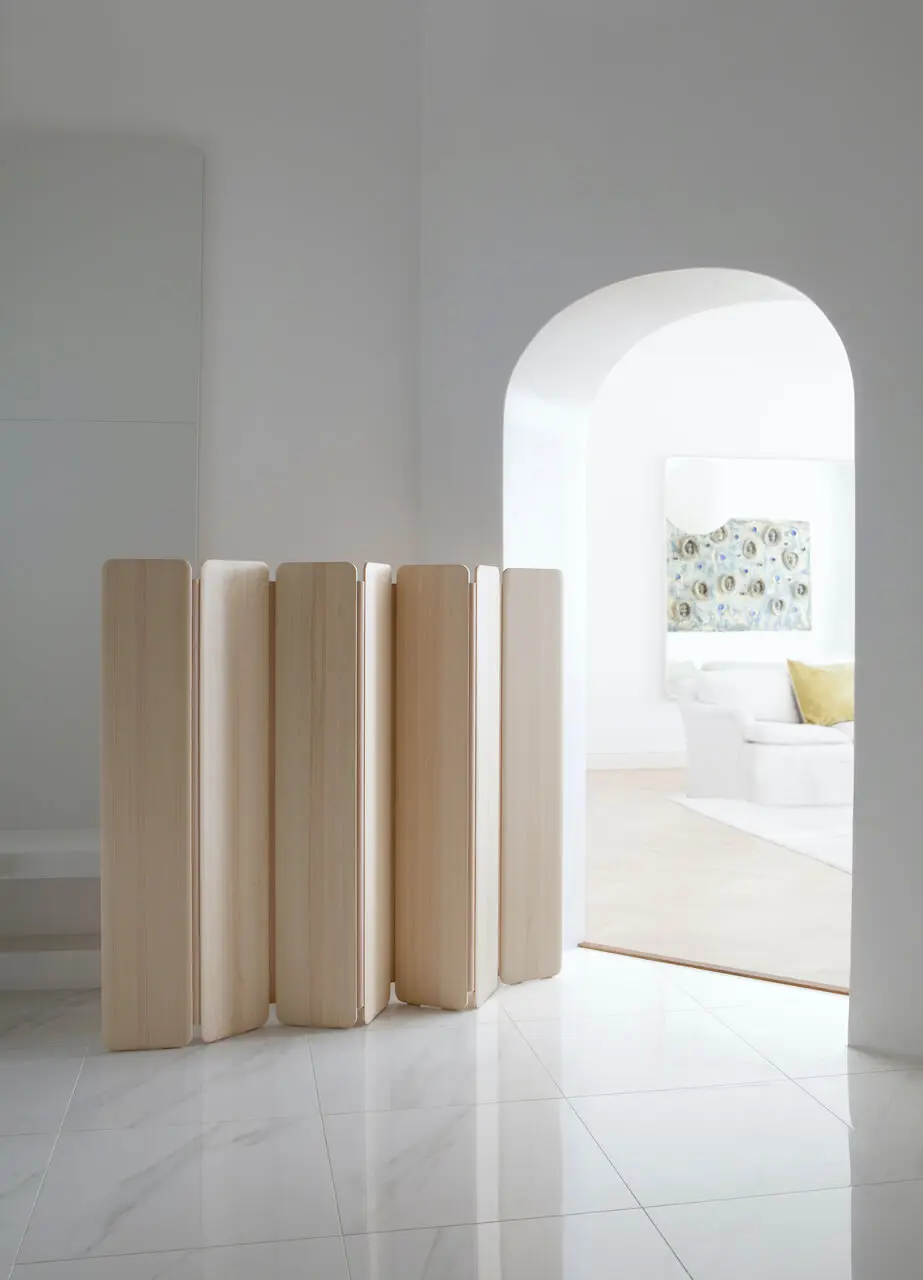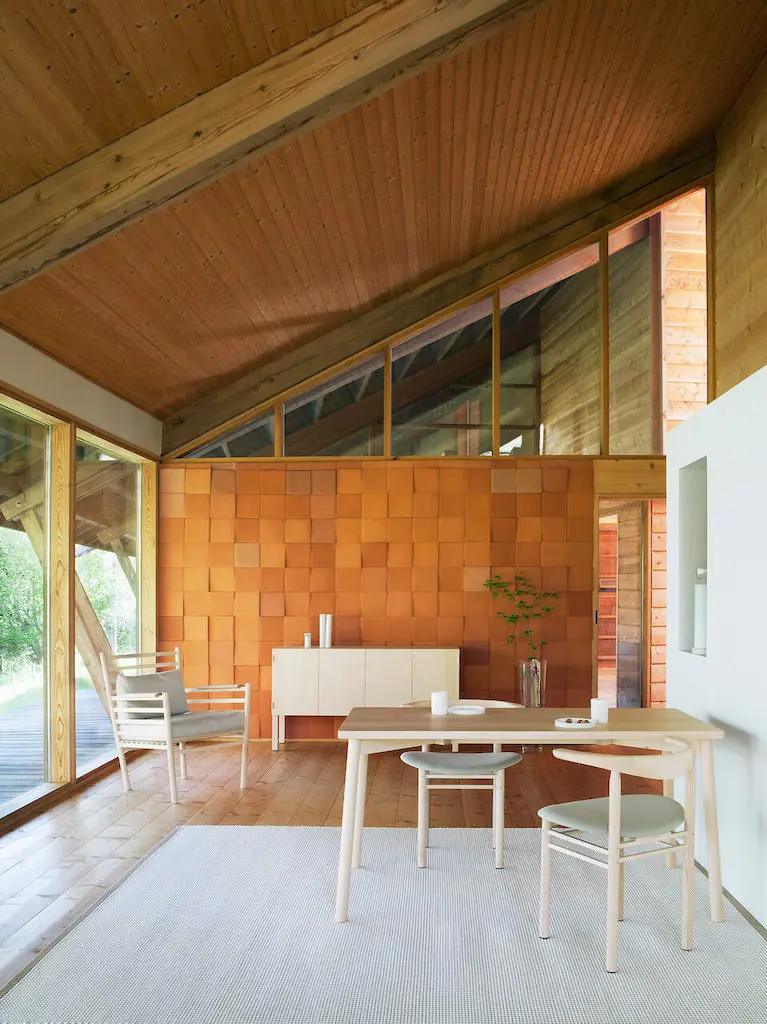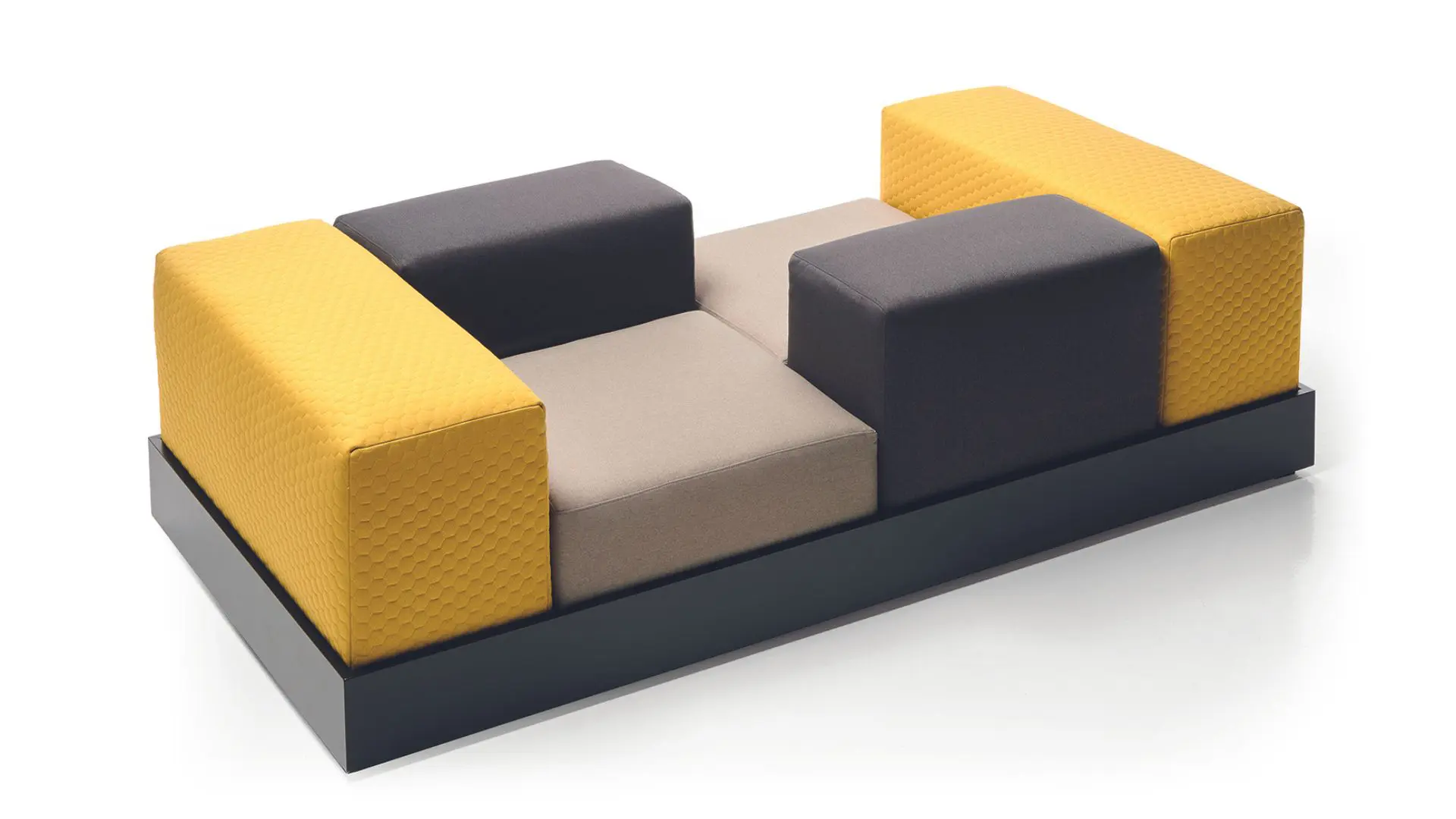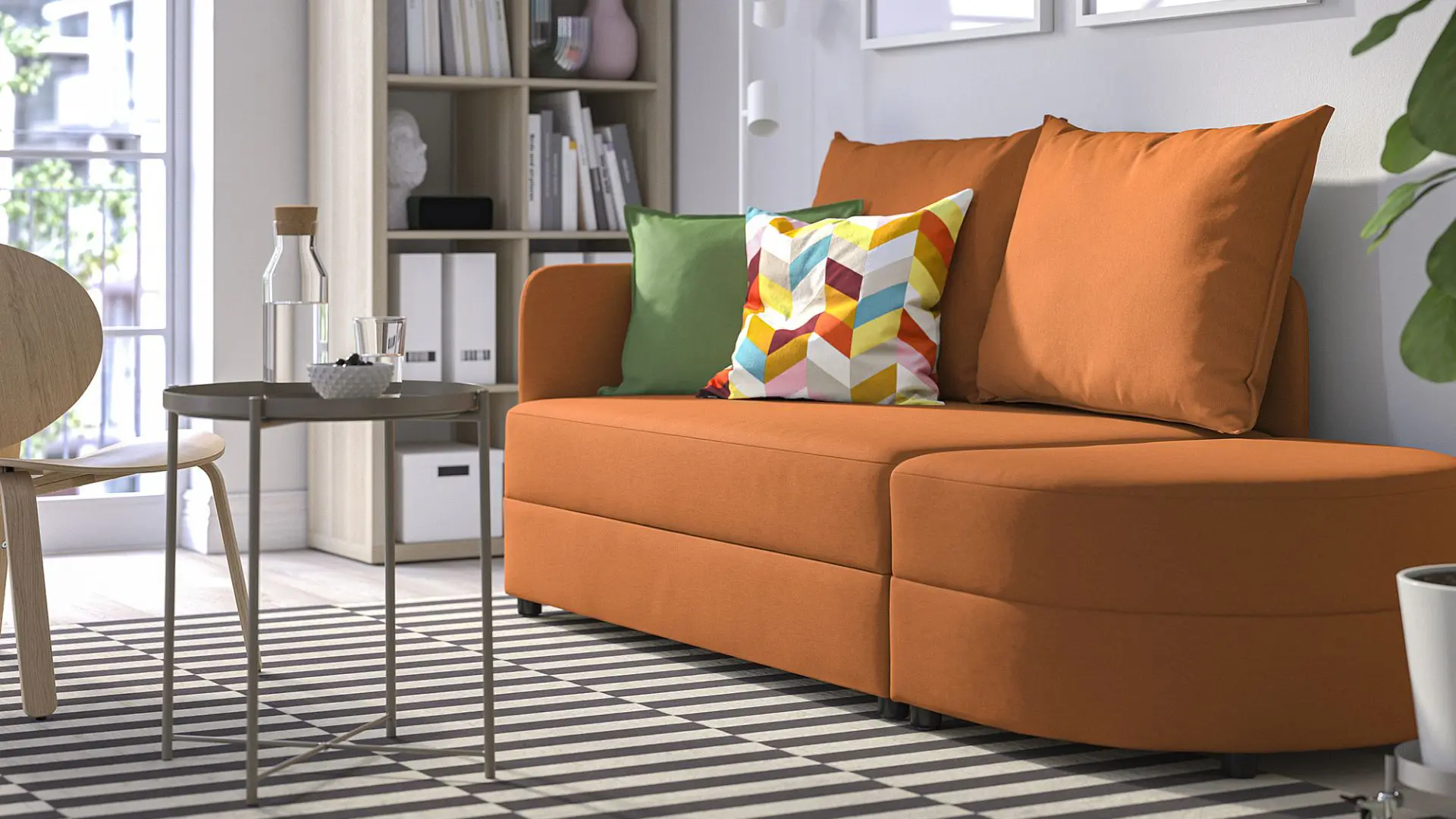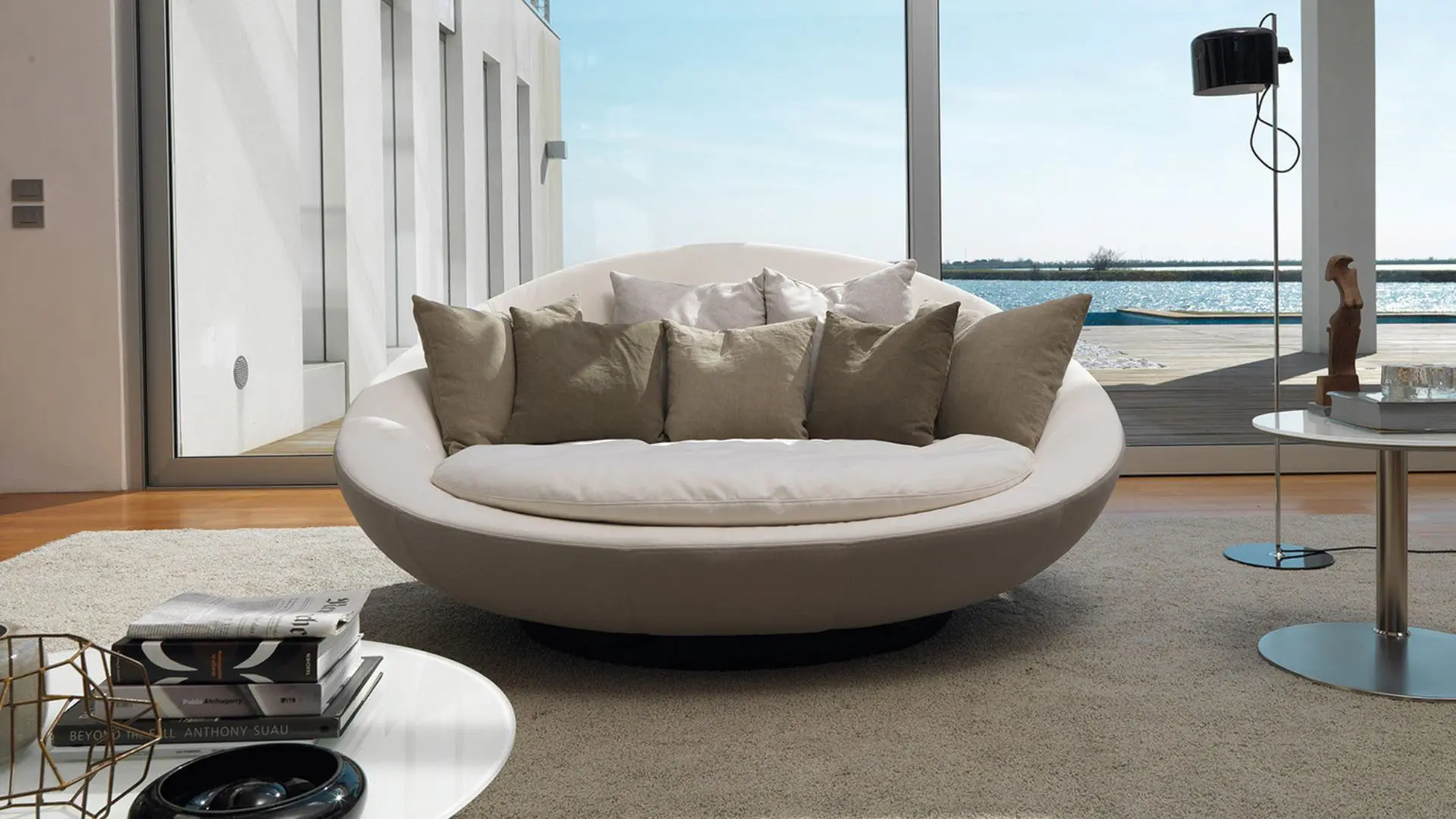Nikari finds the true balance between nature and design
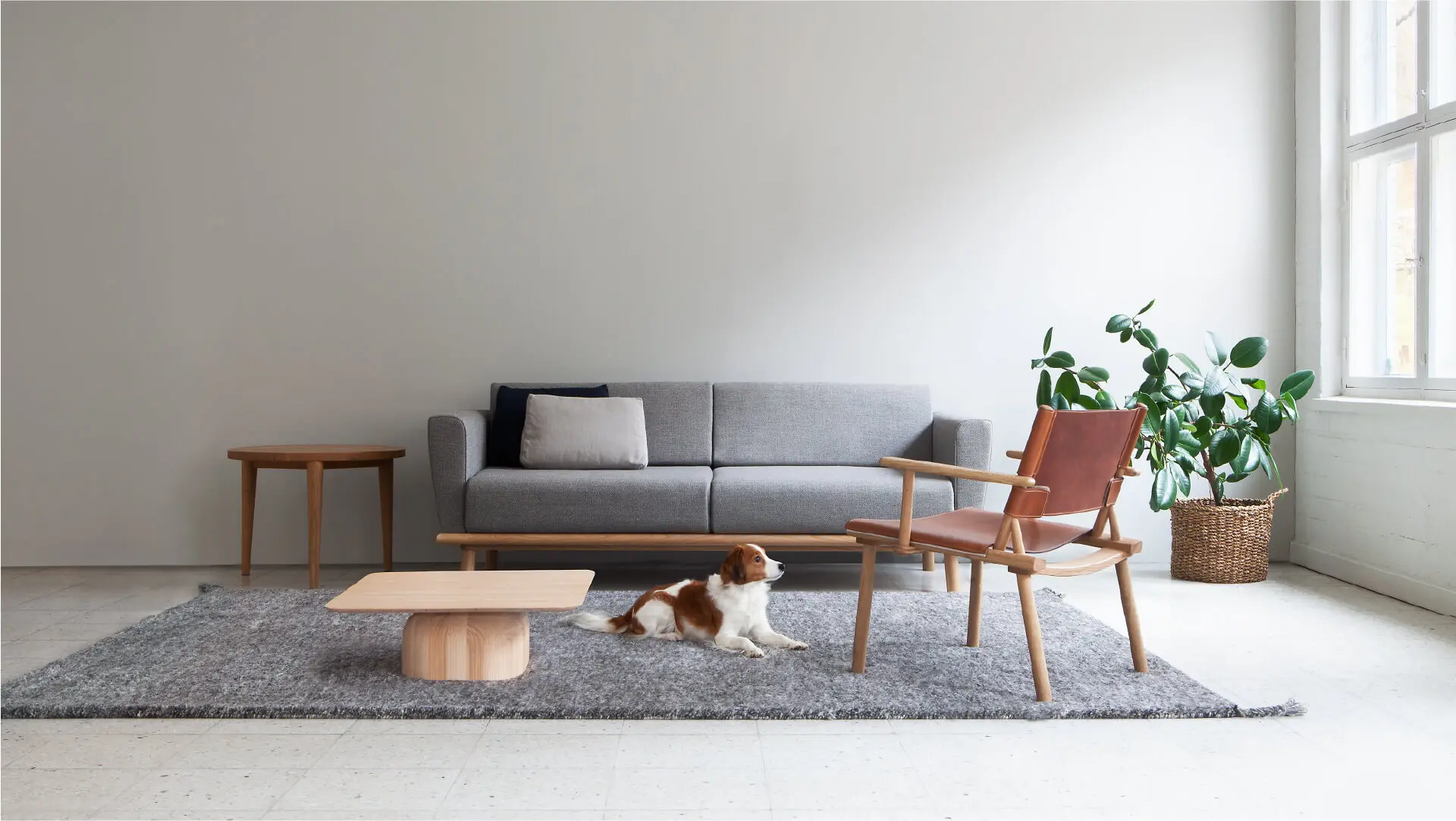
Finnish wood design studio and furniture manufacturer Nikari creates incredibly beautiful and sustainable wooden furniture that aims to find the balance between nature and design.
Established in 1967, Nikari is a Finnish wood design studio and furniture manufacturer with its foundations resting upon the idea of bringing out the best of wood in contemporary design. It is through their beautiful and sustainable products that Nikari showcases their continuous work towards finding the true balance with nature through design by the use of real materials, sustainable manufacturing, and peaceful and authentic living.
With years of experience in the furniture industry and having collaborated with masters of Finnish architecture and design such as Alvar Aalto and Kaj Franck, Nikari understands the necessity for sustainability in the design field and has carefully searched for the highest quality and ecological materials for their designs. Their commitment to sustainability goes beyond the design of their products as they apply it also in their working spaces. Nikari’s head office, studio, and workshop are powered solely using next-generation renewable energy from the hydropower plant next to their building.
Impressed by their exemplary commitment to sustainability, DesignWanted interviewed Johanna Vuorio, entrepreneur and CEO of Nikari, and found out more about their sustainable work, design process, and their option of sustainability in the furniture sector.
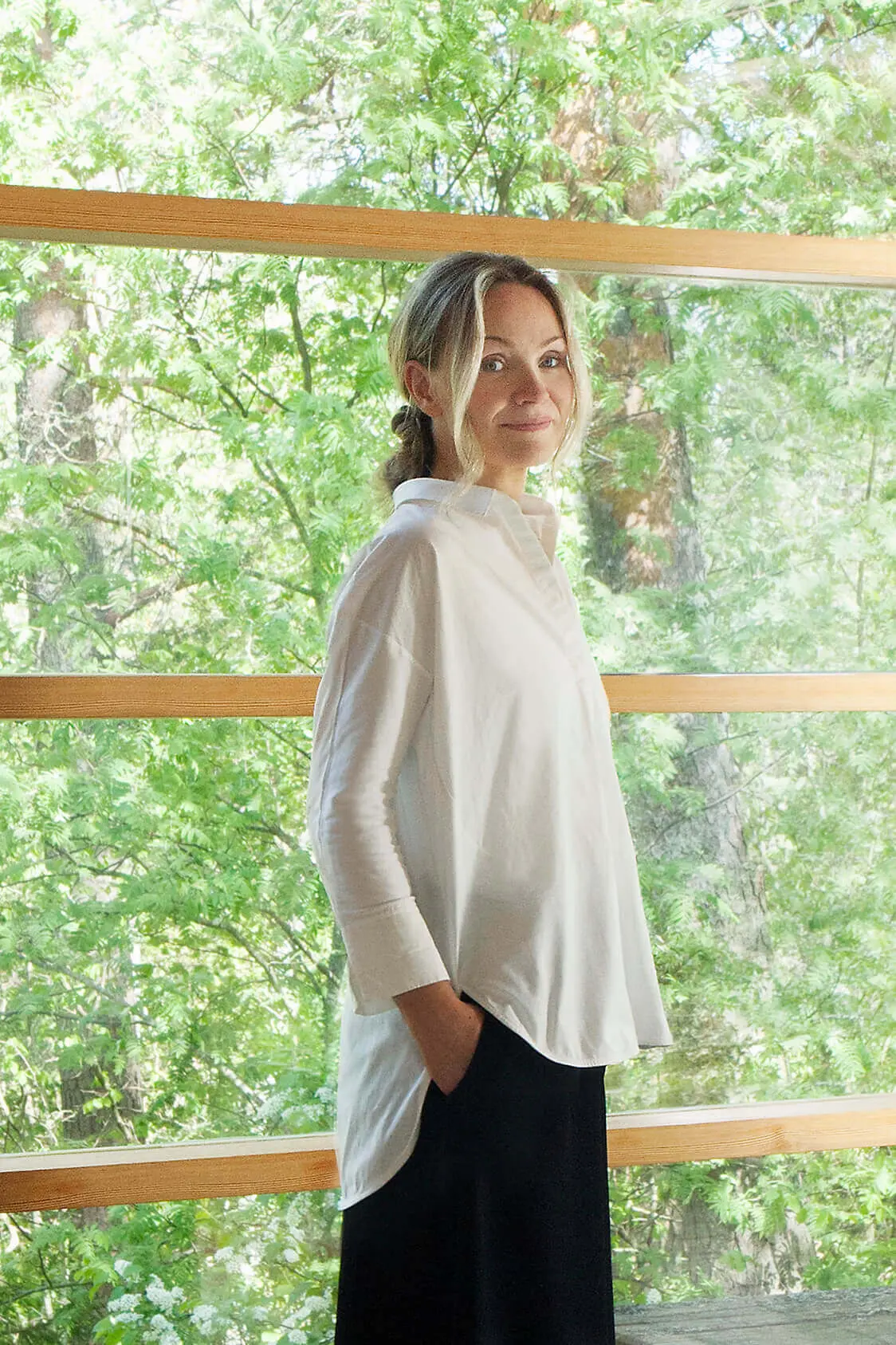
Who is Johanna Vuorio? How did the journey for Nikari begin?
Johanna Vuorio: “I am an entrepreneur and the CEO of Nikari. I had been working in the furniture and design industry in Finland for more than 10 years when I was offered the opportunity to continue the Nikari story. We actually discussed the possibilities with the company founder for 1,5 years before I decided to go for it. I was fascinated by the history and the pure, truly sustainable ethos of the company: that played the biggest role for me in taking the step towards being an entrepreneur in 2010.
I felt it was important that the company I would be working for was 100% honest and based on ecologically solid ground. Otherwise, I wouldn’t have had enough motivation to carry on dedicatedly. I have been blessed with a great superteam, with whom we share similar views of how we all should work in this field.”
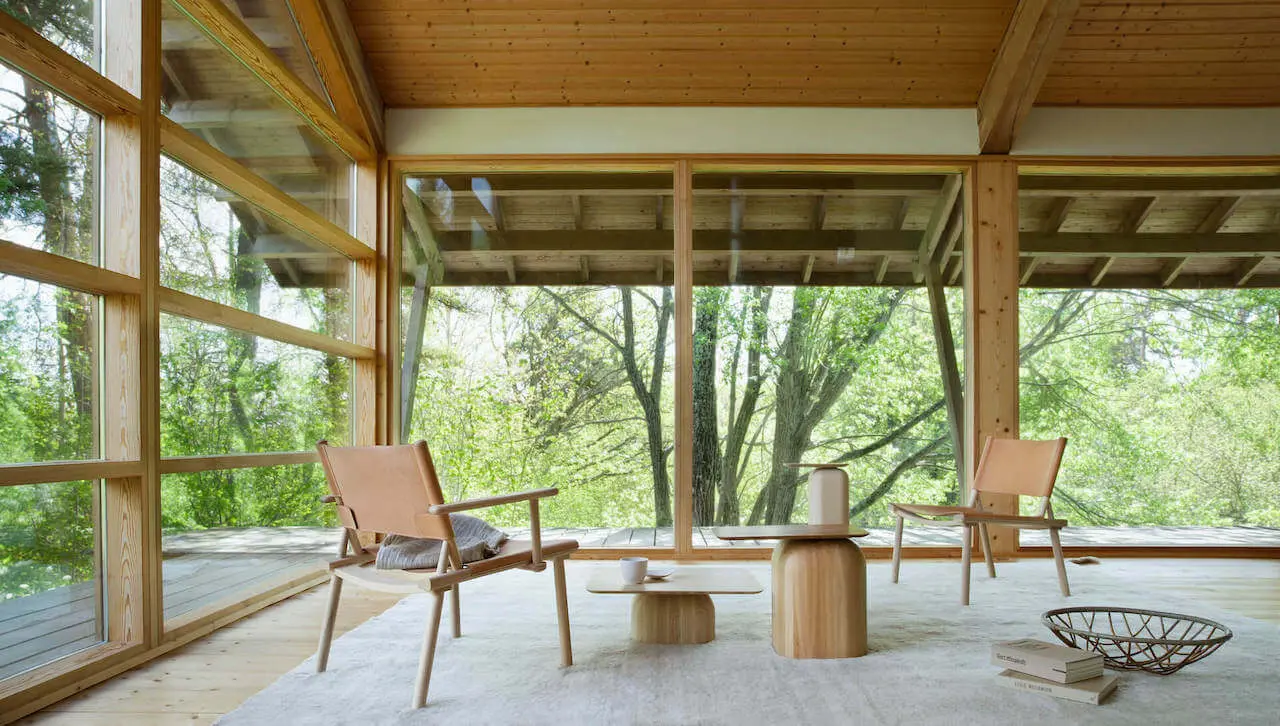
Johanna Vuorio: “Today I am very happy to say that we are continuously improving and taking sustainability into account in everything we do, from using 100% green energy and certified carbon sink raw material to different possibilities in a circular economy. We recycle everything, for example, a part of the wood chip load from our production is taken to a local farm to grow shiitake mushrooms.
We also own a forest that is working as a carbon drain and donate part of the company profits to protect the global forest biodiversity. Since summer 2020 I have also had the opportunity to work as the CEO for Woodnotes, another sustainably-oriented Finnish design company: we now have this interesting behind-the-scenes task of combining our forces.”
Are you in love with wooden furniture as much as us? You will adore the creations of Singapore-based studio Roger&Sons.
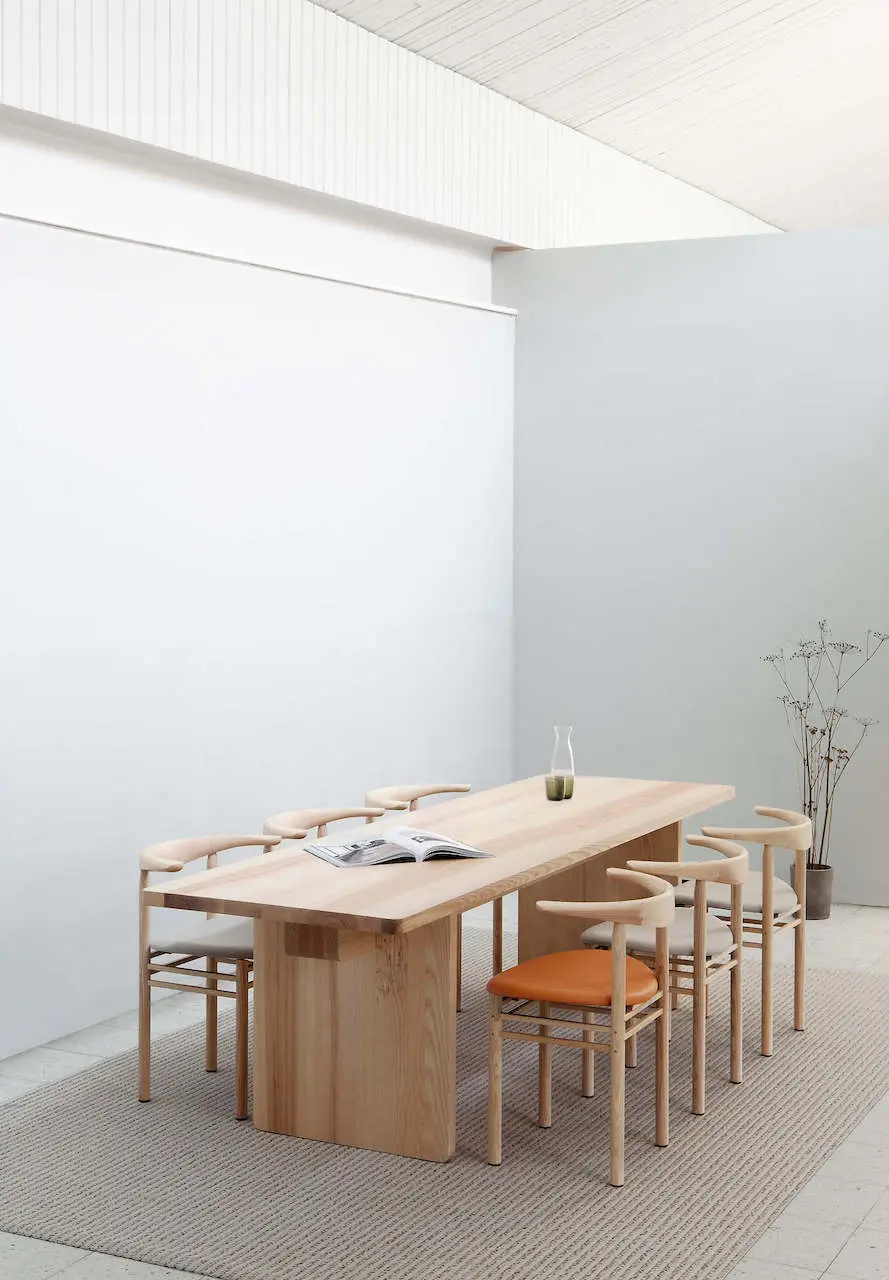
You create long-lasting furniture that combines modern design with Finnish craftsmanship, why focus on wood as the main material for your products?
Johanna Vuorio: “Nikari was founded already in 1967 by a young, exceptionally talented Finnish cabinet maker Kari Virtanen. He had been working with wood from a very young age, which was a natural direction for someone living in the official ”craftsmanship heritage area” of Finland, Ostrobothnia.
Solid wood is also the material that Finns are very familiar with due to the vast forests covering our country, thus using wood was a very straight-forward choice. And we are talking about a material that is unique, warm and lovely to touch – creating cosy surroundings for both homes and workplaces.
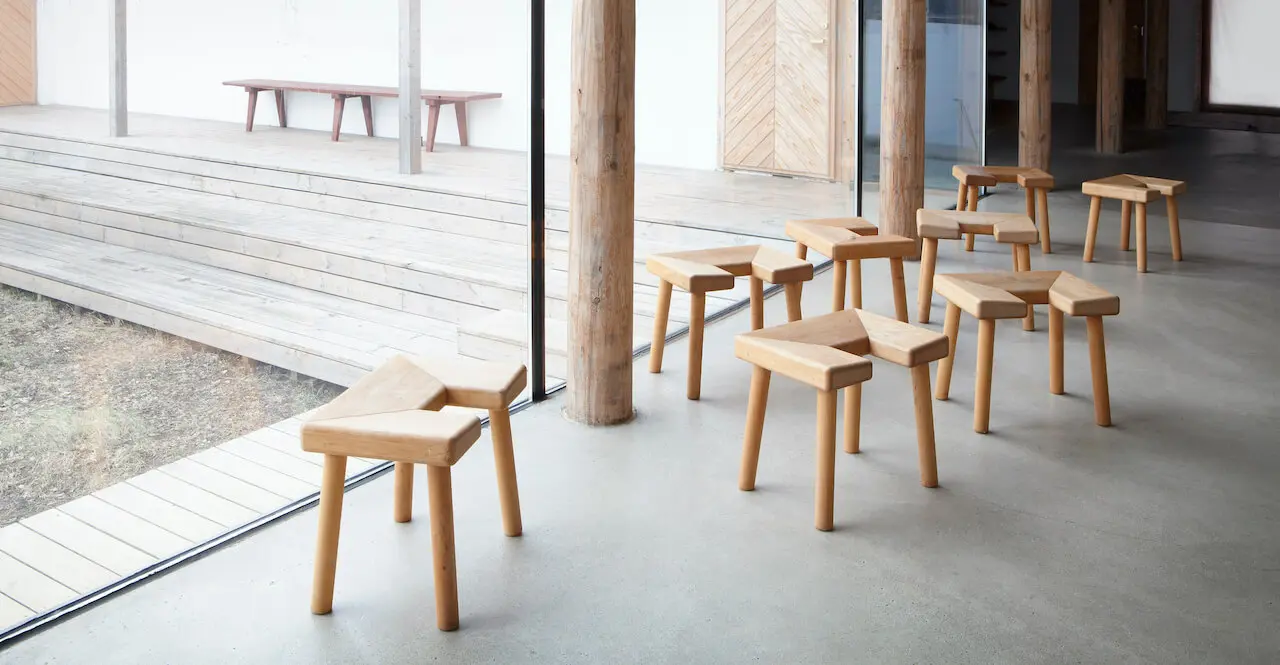
Johanna Vuorio: “The first collaborations with Alvar Aalto architect office and designer Kaj Franck formed the company’s solid wooden core around combining modern design with this craftsmanship tradition. Furthermore, already in the 1970s, Kari Virtanen started to look for safe and healthy surface treatment options. Back at that time the reason for it was the cabinet maker’s health: he wanted to ensure that the craftsman himself wouldn’t get harmed when doing the surface treatment (the catalytic lacquers of that era were somewhat toxic).
Naturally, at the same time, the surface treatment had to maintain the lovely feeling of natural wood: in everything we do, the material needs to stay alive, keeping its soul and character. All this resulted in beautiful, sustainable wooden products that were only made for the domestic market until 2012 when the internationalisation of Nikari began.”
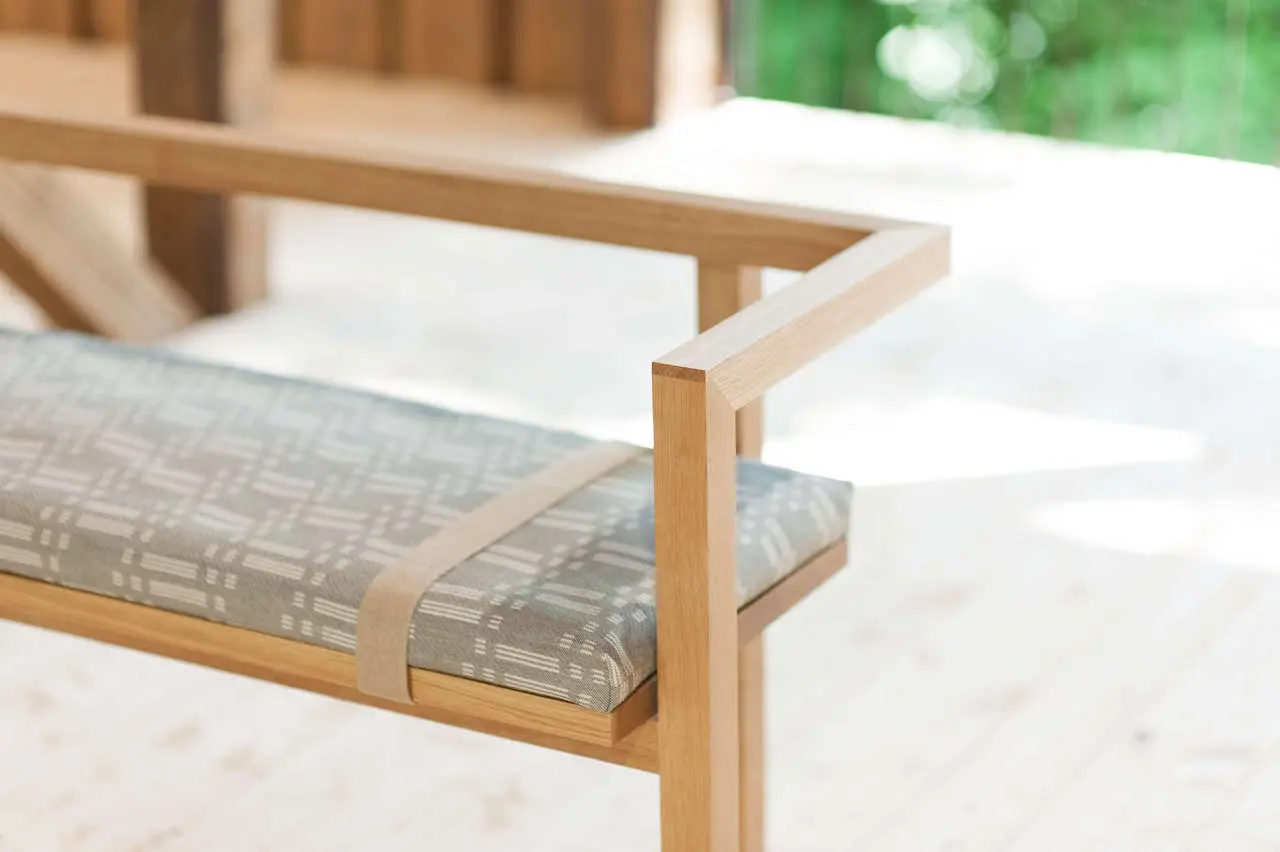
Your head office, studio, and workshop are using solely next-generation renewable energy from the hydropower plant located next to your building to create your products. How would you define the importance of sustainability in the furniture industry?
Johanna Vuorio: “Sustainable thinking is extremely important not only in the furniture industry but in every industry. We have better and better technologies to improve all the manufacturing processes and therefore it is our duty to find longlasting solutions for the next generations. I think a growing number of modern shareholders, leaders and directors feel the same way. We should not only think about revenue or short-term profits but more important long-term goals.
That makes our work more meaningful, inspiring and rewarding. The possibilities of a circular economy are just opening up in front of us. At Nikari we have defined our work in the following way: We will be continuously striving to improve and work dedicatedly on the things we find essential for a better future: real materials, sustainable manufacturing, peaceful and authentic living – finding the true balance with nature.”
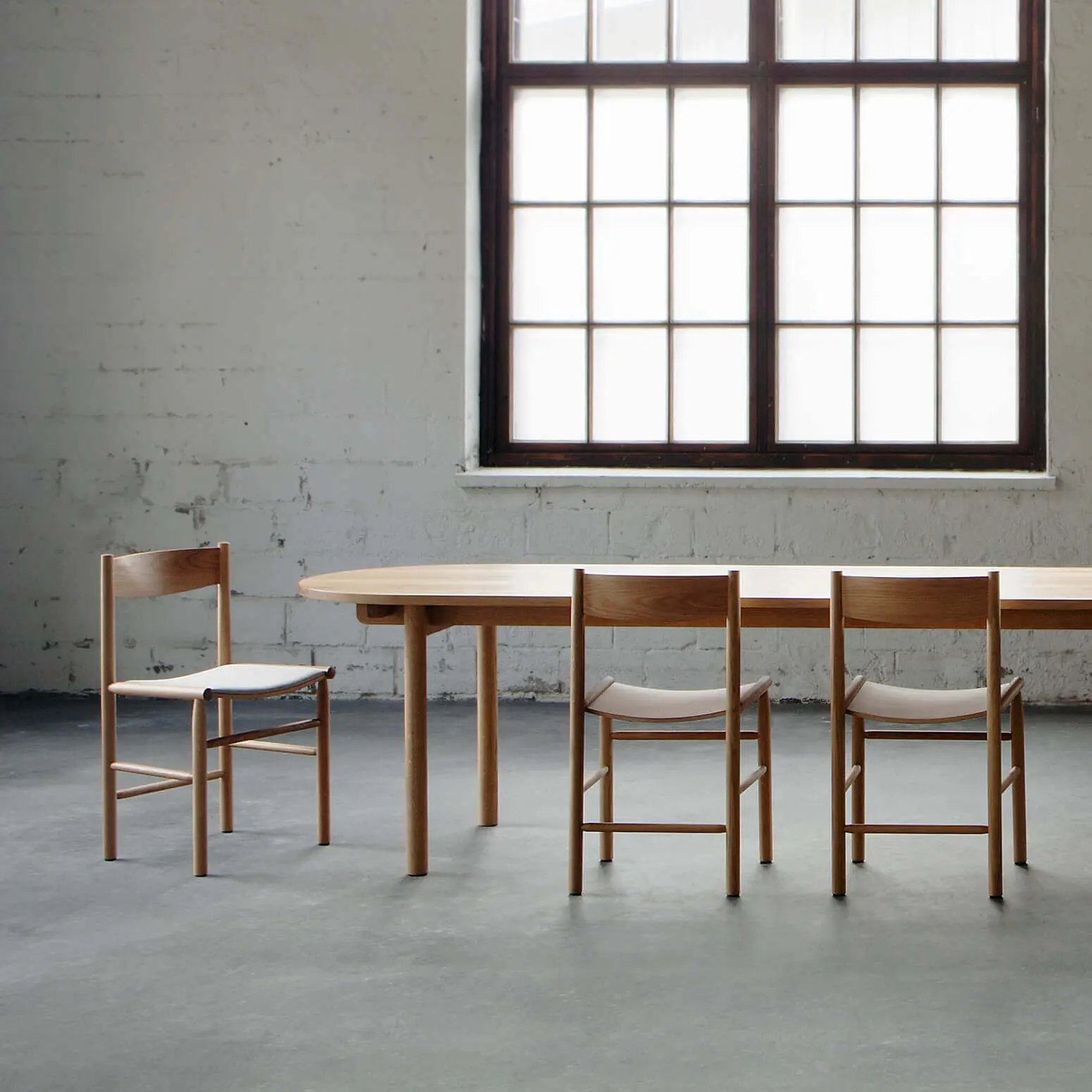
You carefully search for the highest quality and ecological materials possible. How do you do it? How do you research and experiment with sustainable solutions for your products?
Johanna Vuorio: “Since we mainly work with one material, in our case it is important to continue in the way solid wooden furniture was made back in the day. We do a lot of handwork and don’t aim at becoming a mass producer. In our design process, we do our best to find clever solutions to use the raw material as effectively as possible. The waste wood is forwarded into small component manufacturing. Our products can be repaired and re-oiled: this way they can be used for decades, or centuries.
As we all know, when the tree grows in the forest, it stores carbon in its roots, trunks, branches and leaves. Carbon is typically released back into the air as CO2 when the wood begins to decompose (some estimations say that an acre of a forest could absorb twice the CO2 produced by the average car’s annual mileage).
If the tree trunk is used in cabinet making industry to become a piece of furniture before the rotting process, the carbon will be stored in it for as long as it exists.”
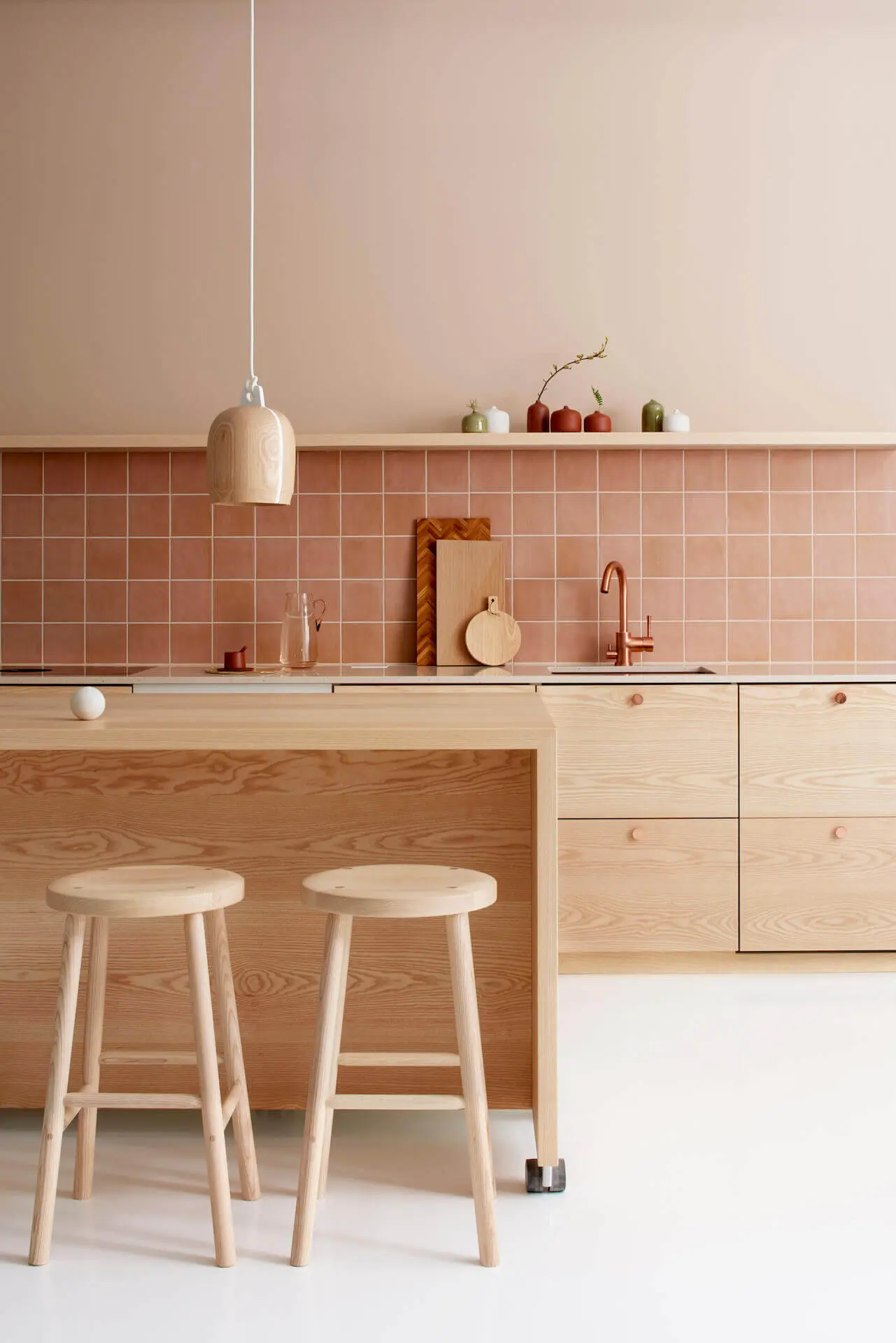
Johanna Vuorio: “Please don’t burn your wooden furniture… Our certified solid wood comes from controlled sources nearby in the Northern European area and we have a constant dialogue with our sawmills. Our production is located solely in Finland: we know exactly where the wood comes from and how the products are made. We try to keep our products simple with a minimum quantity of other materials, and we are continuously looking for the best, high-quality options for the components, surface treatments and for example the freights.
This is done by following the research results in the field and participating in events where we can get the latest information. We naturally have a good, old network of experts that we can always ask. Sometimes the decision-making is difficult when there is not one clearly functioning solution to the challenge at hand
We realise that and the fact no one is perfect – we just need to be ready to improve right when it is possible. Personally, I am really looking for future improvements in the ecological freights: just compensating the CO2 emissions is never enough. Luckily that part of the industry has also begun to act and develop quickly.”
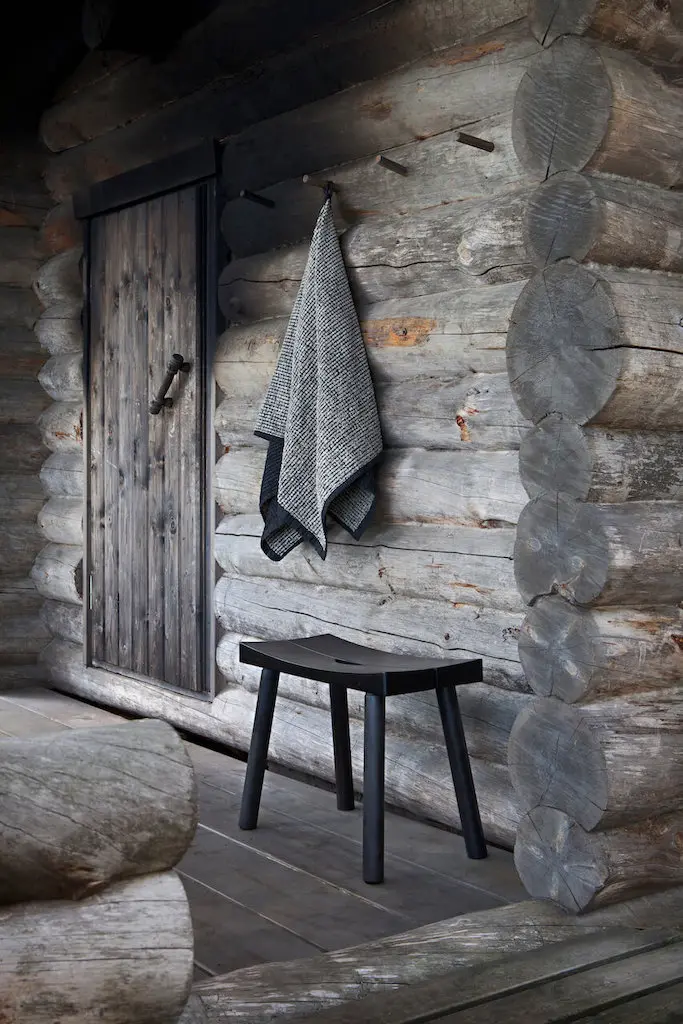
Working with wood to create beautifully designed furniture, do you think it is possible to entirely eliminate the hazardous impact of wood on the environment?
Johanna Vuorio: “Since the biggest problems in this field seem to be situated in the area of excessive cutting of the rainforests to create farmland, often by burning the trees, we need to be very clear in understanding the difference.
Creating solid wooden design furniture in Northern Europe, using material from sustainably managed forests where the annual growth exceeds the annual cut, means that we use wood that has worked as a carbon sink and will stay as a carbon sink when turned into a piece of furniture.
This is a sensible and ecological use of wood, preventing it from releasing its earlier CO2 intake once it decomposes – or burns. As a part of balanced sustainable forest policy, we also need to have old forests that are not touched at all: they are important natural habitats of certain flora and fauna, also with the decomposing trees.”
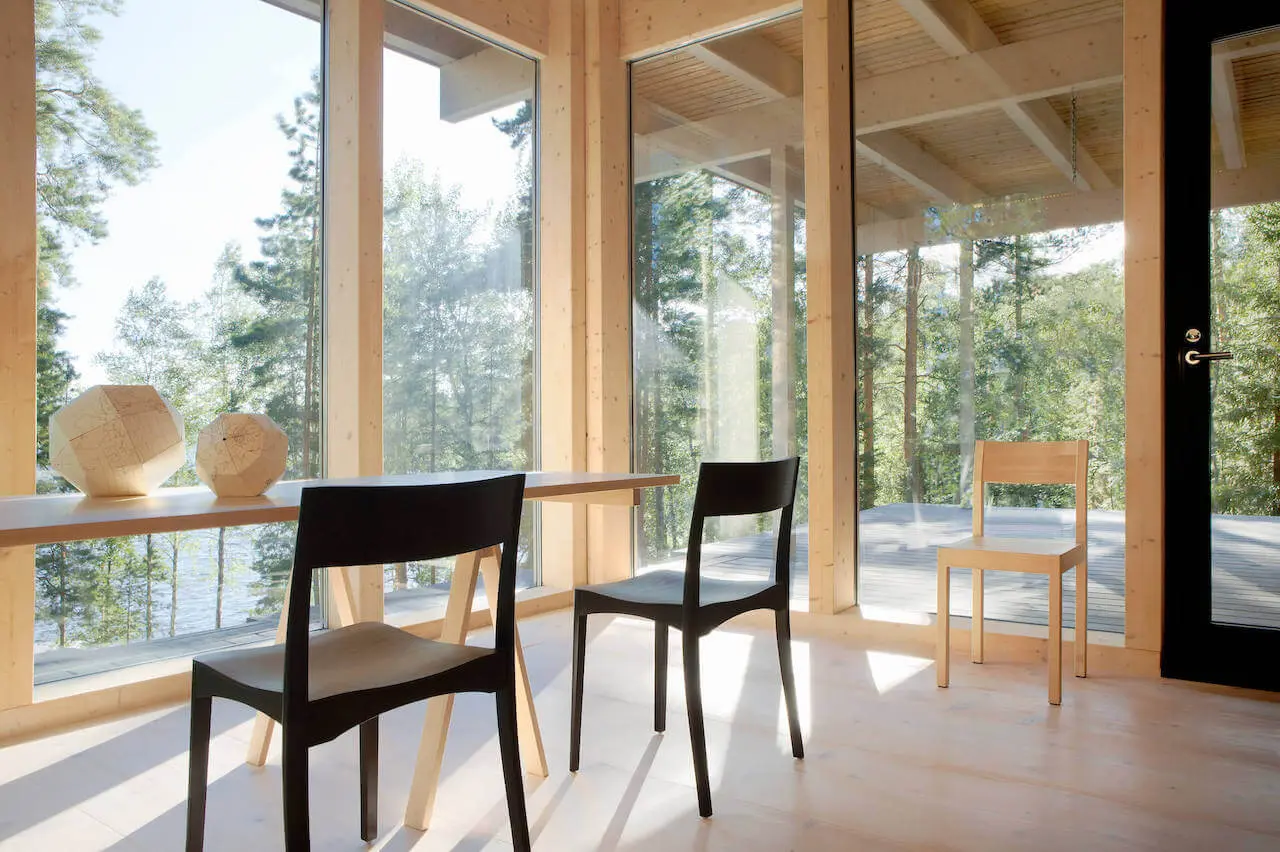
Johanna Vuorio: “Everything is possible – so it should also be possible in the long run to eliminate the negative environmental impact of the erosion-causing excessive cutting especially in the rain forests, plus the usage of fossil energy for some operations in the wood-related industries. However, this requires strong global political decision-making, which will not happen overnight.
We at Nikari wish to be a positive, inspiring example of how wood can be used in the best possible way, letting it keep its carbon sink quality, using leftovers for smaller components – minimizing the amount of waste, and adding value into the quality of life of its user by beautiful design and functionality.
An important thing to remember is also the long lifespan of a timeless design product – it can and should be used for centuries. As an investment, a design piece will sustain its value, so it can be sold to a new happy owner when that is the best option. This, too, is a part of the circular economy of the future.
Sustainable forest management means outcomes that are socially just, ecologically sound and economically viable. Companies that use wood should always take care that the wood they buy is sourced from certified forests, where the volume of annual allowable cut doesn’t exceed the annual growth.”
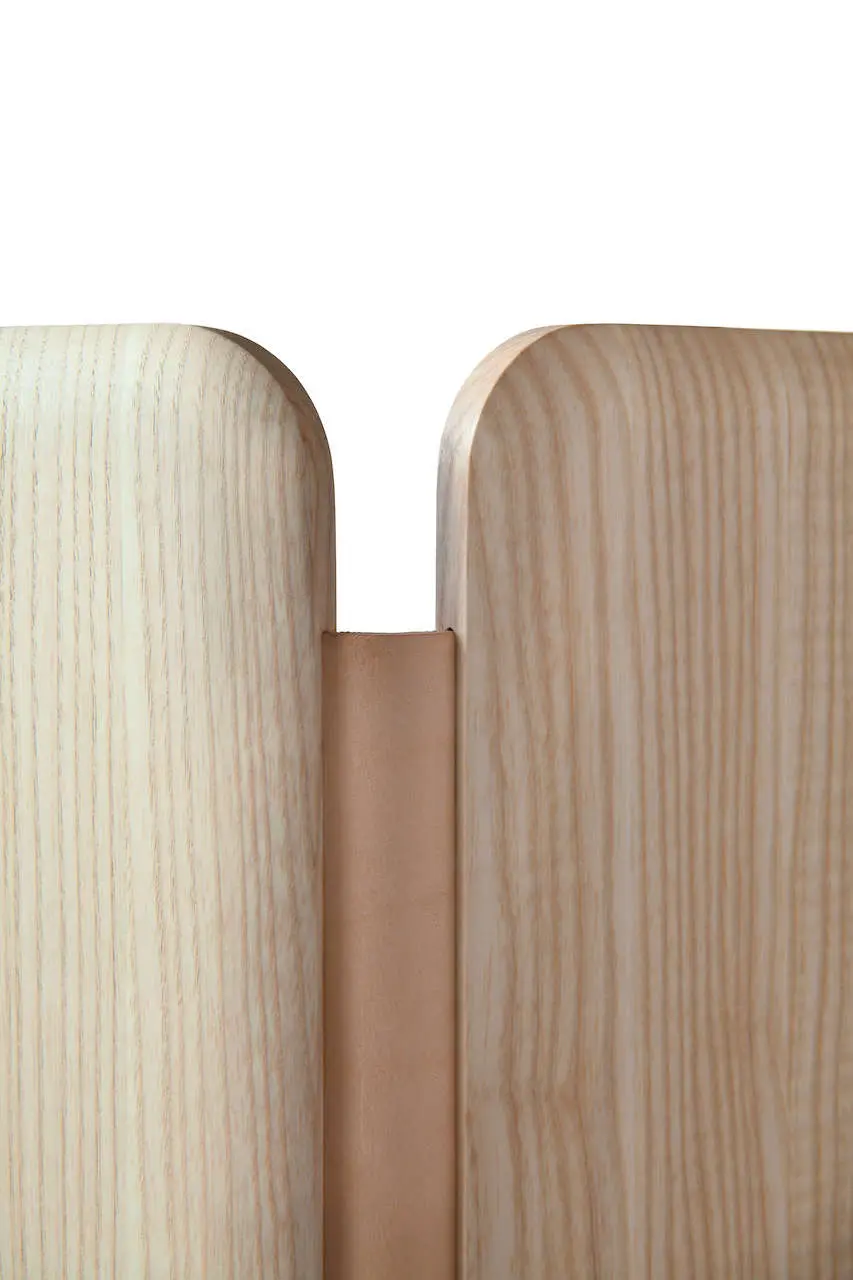
What can we expect next from Nikari?
Johanna Vuorio: “We recently launched a short video clip of our brand, and next year we are aiming at making a few more with some insight about the material, words from our designers and also information about the way we build the furniture. Naturally, we wish that there will be an international fair with all its lively buzz, where we can physically meet everyone next year; fingers crossed.
There will be some new product launches in 2021: it would be great to be able to show the new pieces in reality, too. We live a quiet and peaceful life in Fiskars, and our social media channels reflect our thinking – hopefully calming and slowing down the heart rates from people around the world. Therefore we’re not interested in creating a lot of ”noise”, but more about bringing out our ideas, way of life, and feelings, visually to those Nikari minded people that like to follow us for example via Instagram at @nikarioy“
Are you a furniture company struggling to make your business sustainable? The Sustainable Furnishings Council provides guidance, resources, educational programming and marketing support.
